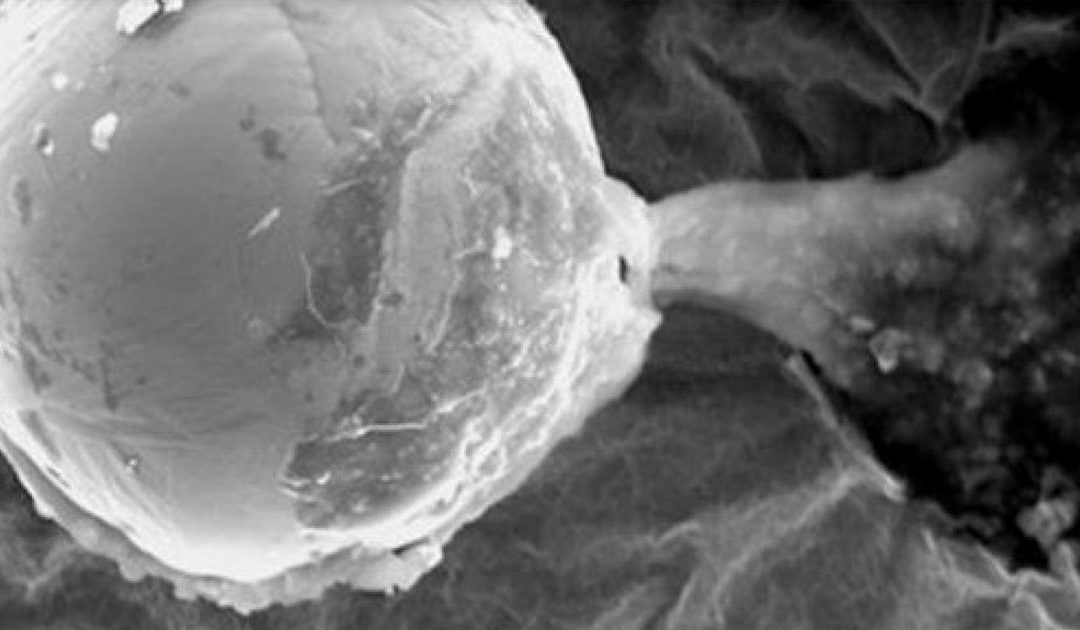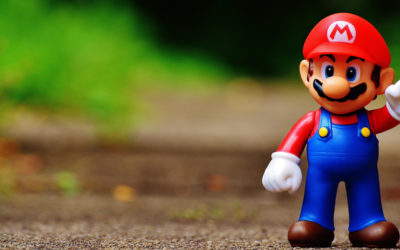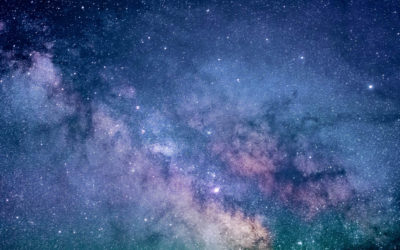Did scientists just discover that the origins of life on Earth were seeded by extraterrestrials? Are we one step closer to revealing the truth?
So we launched some high-flying balloons to do some science stuff. They drifted around in our stratosphere, about 17 miles up, and when they came back down, scientists found something interesting. On the surface of one of these balloons, there was a tiny impact crater, as if something very small hit the balloon at a high velocity. Inside this little indentation was a small sphere oozing some kind of goop. It doesn’t get more 1970’s comic book than this.
Oh no! There’s going to be some opposition to this one.
This is either an amazing PR stunt by Disney/Marvel to announce that Venom is joining the Avengers, or we have the biggest controversy story since the black and blue/gold and white dress debate of 2015.
Upon studying the foreign object, scientists observed that this microscopic globe is made out of titanium and vanadium. It’s about the width of a human hair. According to astrobiologist Milton Wainwright, the globe is spewing a “gooey biological material.”
This isn’t something we normally bump into in nature, but the idea that life on Earth didn’t originate on Earth is nothing new. In fact, we’re all made out of long-dead star stuff anyway, it only makes sense that our beginnings come from space. Of course, there are people who would disagree:
https://www.youtube.com/watch?v=fdUOyPiqaRo
My teeth get a little bit duller from bruxism whenever this lady speaks. Shut up Megan Fox, let us have our fun and science without you pooping in our potato salad! Also, you are a lot less pretty when Michael Bay isn’t behind the camera. Hold on, my earpiece is talking to me… oh, this is a different Megan Fox. Carry on.
What Could the Alien Seed Be?
The thing is, I want this to be something. I want to know its purpose. If this weird, unnatural little ball of metal and genetic material is indeed artificially created, I want to know who and why. I have a few theories:
The Beginnings of Life – A super-intelligent civilization may take on the creative role of seeding life throughout the cosmos. With extreme patience and farsightedness, a culture much more advanced than ours could design and propagate new life. Would this be a lost seed from our ancient past, or does this seed have no connection with life on Earth, but the birth of something new entirely?
Terrorism from Space – What better way to wipe out an entire civilization than with a plague? Introducing carefully manufactured virus strains onto an unsuspecting planet by sprinkling them down from space would be much more cost-effective than face-to-face war, and preserve more resources than orbital bombardment.
Applying an Update – These aren’t seeds for new life – it’s our intelligent designers! Could the ooze inside each little seed be a modification to alter our long-term evolutionary path? Does DNA work that way? We sure as hell don’t know, but it sure sounds like an easy way to patch a vulnerability or make a global parameter change.
Regardless of what this little ball of science is, or how many are raining down on Earth this very moment, it points to one very important case – we’re not alone and our goofball beliefs need to make room for some new ideas.
Sprinkling the Primordial Spices
There’s been a hypothesis since the early 1800’s that the building blocks of life are spread around throughout the cosmos by various mechanical means, such as meteors, space debris, and even clinging to the sides of space-faring vehicles. We believe we’ve seen this first hand with meteors that contain little bits of the Martian surface caused by impacts on Mars blowing chunks of rock into space and eventually making it’s way to the tiny spec of dust we call Earth. This is called Panspermia, and yes, it’s basically interstellar splooge. Similar mechanics exist everywhere (albeit at a much smaller scale) on Earth. Just look at how plants tend to perpetuate.
Whether these mechanics are the Universe’s natural way of spreading life around or designed by an intelligent civilization, the most frustrating part about all of this is that we, as a species, are too dumb to see the bigger picture. It’s a blessing and a curse, because we might be idiots on a cosmological scale, but we sure do have a lot of fun making up our own answers.




